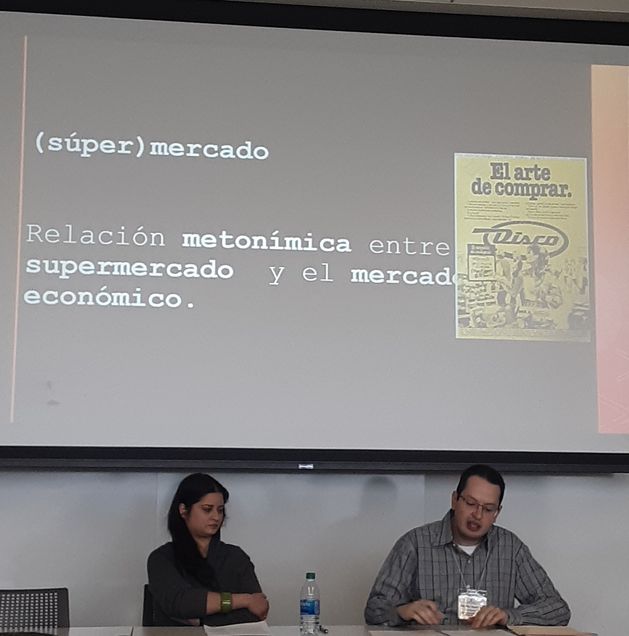 Bruno Nassi Peric, doctoral student in our Hispanic Language & Literatures program, presented a paper this year at the Center for Latin American & Caribbean Studies Graduate Student Conference at Indiana University Bloomington. His paper is titled “La mercantilización del tiempo como factor determinante de la posición del sujeto en la sociedad de consumo. Una comparación entre La prueba (1992), de César Aira y Mano de obra (2002), de Diamela Eltit“.
Bruno Nassi Peric, doctoral student in our Hispanic Language & Literatures program, presented a paper this year at the Center for Latin American & Caribbean Studies Graduate Student Conference at Indiana University Bloomington. His paper is titled “La mercantilización del tiempo como factor determinante de la posición del sujeto en la sociedad de consumo. Una comparación entre La prueba (1992), de César Aira y Mano de obra (2002), de Diamela Eltit“.
Bruno explains his paper:
“In both La prueba (1992), by César Aira, and Mano de obra (2002), by Diamela Eltit, a supermarket is a significant space. While Aira’s novel portrays three girls—Marcia, Mao, and Lenin—who assault and finally explode the commercial establishment, Eltit’s work depicts a group of young supermarket employees who are cruelly exploited but do not act against the situation. This seems contradictory: why are the three middle-class girls, who have no relationship with the supermarket, the ones who attack it and not those who are exploited by it? I propose that there is no contradiction at all. In both novels, there is a metonymic relationship between the supermarket and the market. That is why it can be established that the supermarket in both cases is a (super)market. Thus, the girls of La prueba actually attack the alienation that the (super)market supposes. However, this resistance is only possible because they have an element that in the consumer society is commoditized and very valuable: time. Baudrillard explains, “Time is a rare and precious commodity, subject to the laws of exchange-value” (154). Unlike the girls in La prueba, the youths in Mano de obra cannot “buy” the necessary time to establish resistance against the (super)market because they are poor. Time is a commodity owned and administered by the (super)market, and thanks to this situation, the (super)market can control and oppress those who cannot buy time.”